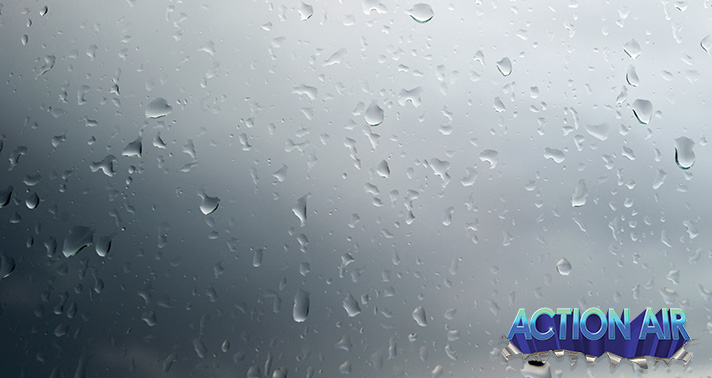How well can your HVAC system handle a severe storm? While the question may seem a bit odd, storms can actually affect your HVAC system. Hail and strong winds can damage outdoor coils, while lightning can cause power surges. Without ample protection, these problems can disrupt your heating and cooling!
With Indianapolis currently in spring, we are seeing higher chances of heavy rain, scattered thunderstorms, and hail. It is important you adjust to the weather by performing storm HVAC protection. Follow these tips below from the experts at Action Air!
Clear Outdoor HVAC Areas
When a storm towers above your home, strong winds and hail can obstruct your outdoor unit’s airflow. Leaves, dirt, and hail can build-up around your outdoor A/C or heat pump. With objects preventing proper airflow, your unit loses some of its performance, and can drive up energy consumption.
You’ll need to clear the area around your outdoor units as much as possible. Use a rake or leaf blower to push away surrounding debris and consider running a garden hose around the sides of outdoor units. Be careful not to pour water in the interior or on the fan, as this can damage the unit.
Perform this before and after every storm if possible.
Fortify Outdoor HVAC Units
After clearing your unit’s area, you’ll need to fortify the unit itself. Hail and strong winds do more than clutter an outdoor unit – it can also cause considerable damage. Fast and large hail can make noticeable dents and may even damage the fan and motor. Strong winds can also launch debris towards the unit.
There are several ways you can fortify your outdoor HVAC units. One tactic is to purchase a vinyl cover for each unit. You can find these at almost any department store and help protect your unit from debris and hail lodging in the coil. This cover also protects against heavy rain.
Note: You must turn off your outdoor HVAC unit before placing a vinyl cover. The cover acts as insulation and can overheat your unit if turned on.
If you would like to get crafty, you can build your HVAC unit a roof using wood as well! Be sure that the wood is spaced a few inches from each plank to maintain proper airflow.
Turn Off HVAC System During Blackout
If a storm causes a blackout, you’ll need to shut off your HVAC system immediately. This helps to avoid damage from a potential power surge.
What is a power surge? A power surge is a massive spike in electricity, often lasting shorter than the blink of an eye. This massive jolt of power can damage connected appliances that are set to draw power. A power surge usually happens during a blackout, since the flow of electricity is interrupted. When the power comes back on, a power surge happens, which jolts electricity through any open currents.
Turn off your HVAC system during a blackout to protect against a power surge.
Schedule an HVAC Maintenance Inspection
The most important part of storm HVAC protection is ensuring your HVAC system is properly maintained. Running your HVAC system through a routine maintenance checklist can help identify issues that could be potentially be exacerbated by a storm.
Contact Action Air for an affordable HVAC maintenance inspection to help boost your storm HVAC protection!
Don’t let your HVAC system become a victim of stormy weather! If you are ready to improve your storm HVAC protection, contact Action Air today. We offer affordable HVAC maintenance inspection services for Indianapolis homeowners. Give us a call at 317-451-4371 to get started!
Related Articles:











